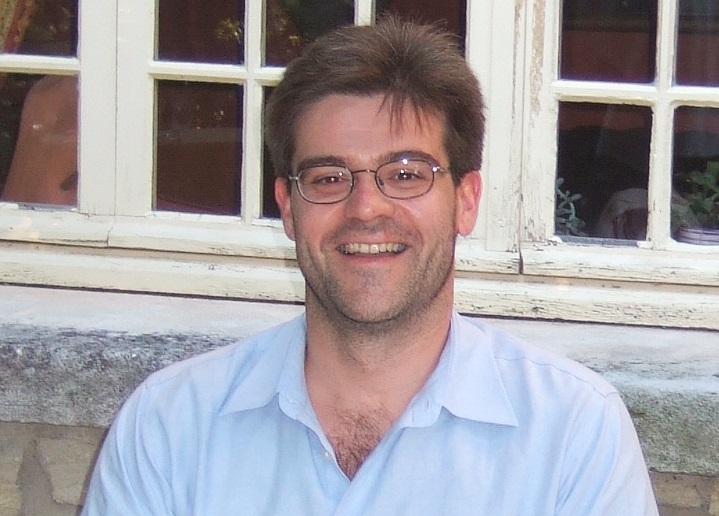Andreas’ story
Andreas was 32 when he was diagnosed in October 2009 with a Glioblastoma Multiforme, Grade IV. It was a terrible, devastating shock – he had so few symptoms, and yet the MRI scan showed a relatively large tumour on the left frontal – parietal lobe.
He had been having some facial spasms for a couple of months, but hardly any other visible symptoms. The MRI had been scheduled as a precaution, but to everyone’s horror, it showed a malignant, aggressive, brain tumour. Our lives fell apart instantly. Because of the position of the tumour, surgery wasn’t recommended and so Andreas endured six weeks of combined chemo-radiotherapy, which perhaps only worked to stall the progress of the tumour by a few weeks.
By early December Andreas was so tired and exhausted from the treatment, his eyesight was failing and he was having great difficulty using his right arm and leg. His steroid medication was increased but it only affected the swelling for a short time. Andreas’ suffering became intense and on New Year’s Eve 2009 he was rushed to hospital, first to the Whittington in north London, and then to the National Hospital, where they performed an emergency resection.

“In Andreas’ memory, I am now committed, with the help of my family and my friends, to raising funds for critically needed research into primary brain tumours in the hope that one day, a cure may be found.”
Andreas recovered from the operation, which we were told had gone well but the tumour was advancing so rapidly that he had only been out of hospital for two nights when he was rushed back into the National and the surgeons performed an operation to put in a shunt to drain the liquid caused by the swelling from the tumour. But the effects of the shunt didn’t last very long, and although he was due to take another course of chemotherapy, he was too ill to complete the course. Andreas died on 21 March 2010 aged 32.
Andreas is so greatly missed by everyone who loved him. He was such a wonderful, vivacious, selfless, intelligent man, who gave everything to those he loved. It has been so incredibly difficult and painful having to learn to live without him. More research is desperately needed to combat this deadly disease, which has taken away my young husband and which continues to affect young adults with no significant change in prognosis and treatment over the last two decades.